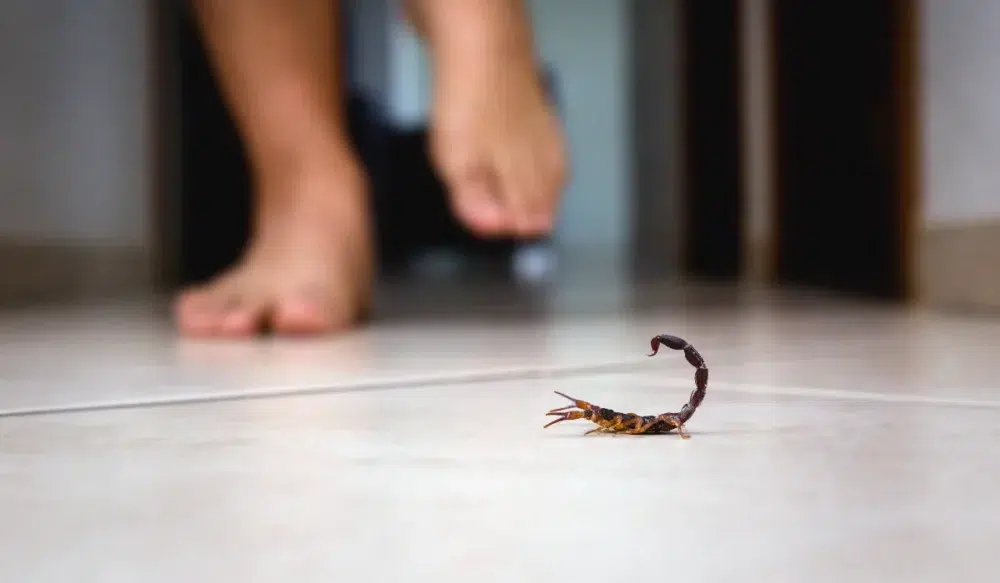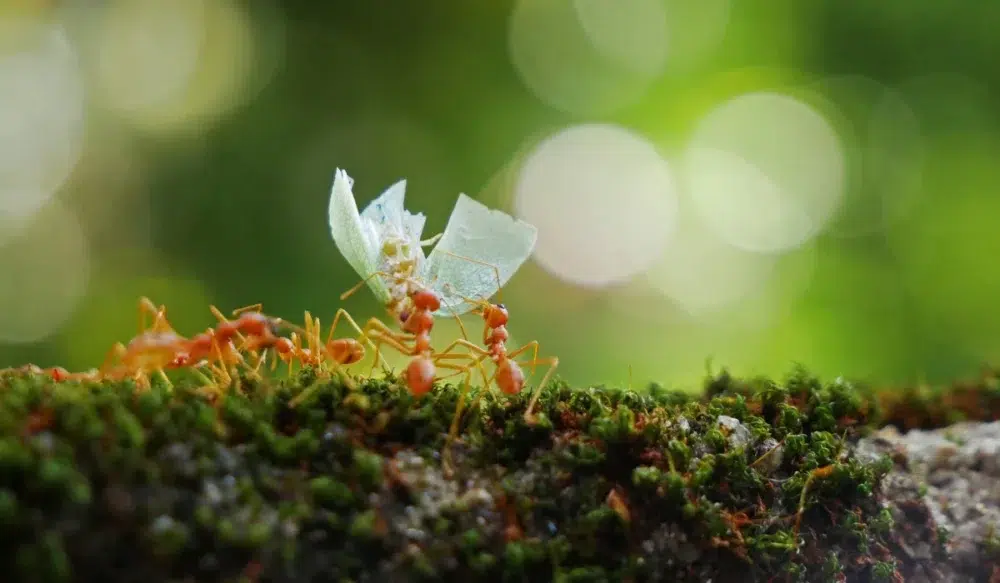Living in Phoenix, Arizona, comes with many perks – beautiful weather, plenty of outdoor activities, and some of the most breathtaking views in the Western United States. However, it also comes with one major downside – the presence of pesky mosquitoes!
Mosquitoes can turn a perfect summer day into an itchy, scratchy nightmare. Their non stop biting and frustrating buzzing can put anyone on edge, especially during outdoor festivities or parties.
The problem becomes much worse when you consider the mosquito’s negative outcomes, particularly their association with parasites and disease. Mosquitoes are known vectors of dangerous viruses, bacteria, and parasites, some of which can even prove fatal under certain conditions.
There are two major types of native : the stagnant water mosquito and the flood water mosquito. Non-local species such as Aedes aegypti can also be found in dense suburban areas, meaning there could be hundreds if not thousands of hungry pests flitting about your lawn at any given moment.
Thankfully, mosquitoes are not an unconquerable pest here in the Phoenix area. There are manageable steps and actionable advice you can use to prevent and control these nuisance bugs. With the right company by your side, you can even put a stop to a mosquito infestation altogether!
This guide provides an all-inclusive overview of how to deter mosquitoes from your property (and keep them away for good). It also discusses the mosquito life cycle, inherent dangers, and prevention steps, along with how Green Home Pest Control can defend what’s rightfully yours.
Now, let’s begin with a thorough investigation of the average mosquito’s life cycle.
Understanding The Mosquito Life Cycle: A Key To Effective Control
As mentioned, there are two native mosquitoes (and one invasive species) located in Phoenix, AZ. Although these pests possess different behaviors and outward appearances, they still follow a relatively straightforward lifecycle from egg to adult. There are four distinct phases to keep in mind: egg, larvae, pupae, and adult.
The egg stage of the mosquito’s life cycle is by far the most predictable. Adult mosquitoes lay their fertilized eggs in stagnant water at or above the size of a bottle cap. Water sources in tires, tarps, or other toys are some of the first places to look when scouting for egg-laying sites.
You should know mosquito eggs take variable amounts of time to hatch into full-grown larvae. Depending on the weather, temperature, and location, eggs may take a few days to a few months to complete their development.
Mosquito eggs eventually hatch into mosquito larvae, which are most aquatic in nature. These tiny creatures cannot feed on blood and instead swim in their stagnant pools feeding on whatever detritus is available. Some even consume other mosquito larvae before pupating into adults.
Mosquitoes enter the pupae stage in as little as five days after hatching into larvae. Wrapping themselves in a strong outer casing, pupation is often referred to as a ‘tumbler’ phase, as the pests no longer need to feed and simply tumble about in the water. They are most susceptible to external pest management at this phase, as hungry fish, frogs, and predatory insects can easily dip into the water for a meal.
Mosquito adults emerge from their casing approximately two to three days post-pupation. These fully grown pests can easily take flight within hours of ‘hatching’ or as soon as their body parts harden to the air. Male mosquitoes do not need to feed on blood and instead live off nectar from flowering plants. Female mosquitoes also feed on nectar but require blood meals in order to reproduce.
Females typically last 42 to 56 days on average, while males live ten days at the most. However, some species are capable of overwintering for several months to prepare for next year’s spring.
It’s clear mosquitoes are clever pests with the ability to survive even the harshest conditions. Unfortunately, this poses problems to both people and pets – especially when it comes to the spread of disease.
Let’s take a closer look at mosquito-borne diseases and how they affect property owners in Phoenix.
Mosquito Dangers: Itchy Bites, Allergic Reactions, And Diseases
There’s a good chance you’ll notice an increased number of mosquitoes as the summer waxes on. Not only does this signify an increase in breeding populations, but it may be a warning sign of increased disease spread.
Summertime mosquitoes can spread all sorts of illnesses, ranging from viruses and bacteria to life-threatening parasites. Understanding what you’re up against and how it could affect your lifestyle is critical for keeping your home and business safe.
Perhaps the most obvious effect of an increased mosquito population is an increase in potential bites. Itchy, raised bumps may appear on your skin and last for several hours or days. Scratching these bumps is a bad idea – you may break or infect the skin. There’s a chance this could lead to secondary infections or leave scars on the surface of your skin.
You should know some people experience more serious mosquito bites than others, especially when it comes to allergic reactions. At-risk individuals may experience breathing difficulties, heart palpitations, and other serious conditions following mosquito bites. If you believe you’re exhibiting signs of an allergic reaction, don’t hesitate to contact a medical professional immediately.
Still, the number one concern about mosquitoes is their ability to spread disease. Many mosquito species in Phoenix pose significant health risks with lifelong implications.
Let’s look at some of the most dangerous of these below:
- West Nile virus: Experts consider the West Nile virus to be the most common mosquito-borne illness here in North America. It is spread by the Culex species – commonly known as the house mosquito – and can cause encephalitis (inflammation of the brain) or meningitis (inflammation of the spinal cord). Although rare, West Nile virus may be fatal in severe cases. It’s important to seek medical attention as soon as you discover symptoms.
- Chikungunya: This virus is typically found in tropical climates, although there have been confirmed cases in Arizona. The most common symptoms are joint pain and swelling, although side effects like headaches and fevers are not uncommon. Seeking medical attention is always a good idea if you believe you have contracted chikungunya.
- Dengue fever: Mild cases of this illness lead to aches and pains, nausea, and a rash. More serious cases can require medical intervention.
- Tularemia: This is a rare disease that is easily mistaken for other, more common illnesses. A 10 to 21 day round of antibiotics can be used to treat the illness, and while symptoms can linger for several weeks, most patients fully recover.
Don’t forget that can also affect your furry friends. Dogs are particularly prone to mosquito-borne diseases, including heartworm, which can be fatal.
It’s important to take steps to and the spread of disease on your property. Fortunately, there are simple steps you can take to protect yourself, your family, and your pets.
Mosquito Prevention: Eco-Friendly And Effective Tips
There’s no way to eliminate all mosquitoes currently breeding around your home. That said, there are ways to control their population growth and reduce their ability to spread around your property.
The professional team at Green Home Pest Control believes defense is the best offense against mosquitoes, which is why we’ve compiled a list of actionable steps to protect your property from rampant infestations.
Below are a few of our time-tested tips for or business from mosquitoes. If you have any questions or are unsure of where to start, feel free to contact us for answers right away.
- The best and most effective way to get rid of mosquitoes is to dry up breeding areas around the yard. Start by removing any standing water sources like bird baths, ponds, and flower pots. You can fill in potholes with additional topsoil and replace the water in your bird baths at least four times per week. Remember: mosquitoes only need water the size of a bottle cap to lay dozens of fertilized eggs. You should leave no stone unturned while treating your property and keep a sharp eye out for conducive conditions.
- Another great way to keep mosquitoes away is to fully manicure your lawn. First, trim all grasses and shrubs to a reasonable height, as taller plants tend to harbor higher populations of mosquitoes. Next, mow your grass to at least three inches to keep pests from laying eggs on muddy turf. You should prune any overhanging branches or woody shrubs to remove shady areas or other attractant factors (like excess humidity).
- Worried about mosquitoes getting inside your home? Consider installing window and door screens to keep critters away from your living space. You can run fans while on your porch or patio to stop mosquitoes from flying too close for comfort. Using citronella candles or planting marigolds and mint can also help to protect your property from mosquitoes.
- Don’t forget to protect yourself while out and about in the yard. First, wear long-sleeved clothing and tall socks to cover any vulnerable points. Then, treat exposed skin with mosquito repellant to prevent unwanted bites. You can always tuck your pants into your socks to get an added layer of protection.
Keep in mind each of these above tips applies specifically to mosquito prevention. If you’re already experiencing an above-average infestation, none of these suggestions will help you restore your yard.
That’s not to say there’s nothing you can do about mosquito infestations in Phoenix. With the help of Green Home Pest Control by your side, you can easily reduce unwanted infestations and defend your home or business.
Let’s take a closer look at what you can expect from our team.
Professional Pest Control: A Smart Way To Keep Mosquitoes Away
Professional mosquito control is the fastest, cheapest, and most effective way to manage problematic mosquito populations around your Phoenix property. We offer dozens of options for your yard in a way that caters to your needs, offering same-day and emergency services with a careful reliance on Integrated Pest Management practices.
Here’s what you get when you sign up for professional from Green Home Pest Control:
- A comprehensive mosquito inspection of your Phoenix property, along with a full identification and evaluation of conducive conditions. We provide you with a full report discussing everything we found so you can make an informed decision about your next steps.
- Effective mosquito control solutions designed specifically for your needs. In addition to traditional approaches for bushes, trees, and other foliage, we also provide treatments with the In2Care mosquito control system. We can even address standing bodies of water with special mosquito bacteria, which means you can get 360 degrees of mosquito control without needing to lift a finger.
- We remove accessible water sources to stop mosquitoes from returning to your yard. We quickly drain bird baths, buckets, and other filled spaces to eliminate eggs, larvae, and pupae. Have a specific area in mind? Let us know how we can help! We’re driven to provide outstanding mosquito control in Phoenix and beyond.
Our team makes it quick and easy to schedule mosquito control for your lawn. All our estimates and inspections are 100% free, so you can make the right choice for your yard from the get-go. Plus, we offer pest-free guarantees, so you know for a fact we stand behind our work. Coupled with same-day and emergency treatments (as well as an emphasis on Integrated Pest Management), you can trust that the team behind Green Home Pest Control has everything you need to control mosquitoes naturally.
Ready to get started on a mosquito service for your Phoenix home or business? Just reach out to the pros at Green Home Pest Control to book your initial inspection and to learn more about our residential and . We look forward to having the opportunity to not only meet, but exceed your expectations.
Request Your Free Estimate Today
Complete the form below to request your no obligation estimate.
RELATED: Crane Flies Vs. Mosquitoes: What Phoenix Homeowners Need To Know


